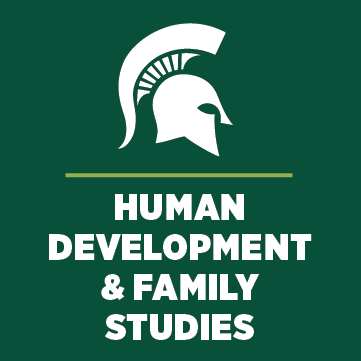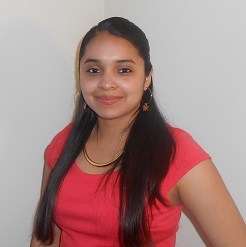The Graduate School Mentoring Awards recognize graduate programs, faculty mentors and doctoral students whose practice exemplifies the Foundational Values for Graduate Student and Faculty Mentoring Relationships and who make exceptional efforts to sustain the rights and fulfill the responsibilities outlined in the MSU Guidelines for Graduate Student Mentoring and Advising. Although we had hoped to provide these awards at this year’s PhD Commencement, we hope that these awardees will receive the public recognition and congratulations that they richly deserve.
Outstanding Graduate Program Community Award
 The Outstanding Graduate Program Community Award goes to Human Development and Family Studies. The HDFS program has implemented a comprehensive approach to mentoring implemented by the HDFS program. This approach includes a perceptive and proactive interview process during recruitment, an effective orientation that includes mechanisms for peer mentoring and career planning, and a year-by-year process to nurture and sustain the professional and intellectual development of graduate students. In addition to these departmental efforts, the student nominators described the strong emphasis on student-initiated, student-led activities that receive advisory and monetary support from the program. Although this award recognizes several years of sustained mentoring initiatives, HDFS students also called out the special efforts they have seen during the COVID-19 crisis, with careful listening and quick action so that “students have continued to thrive despite the stressors of social distancing and rapid policy changes” and they have felt “supported and connected with the department during this time of uncertainty."
The Outstanding Graduate Program Community Award goes to Human Development and Family Studies. The HDFS program has implemented a comprehensive approach to mentoring implemented by the HDFS program. This approach includes a perceptive and proactive interview process during recruitment, an effective orientation that includes mechanisms for peer mentoring and career planning, and a year-by-year process to nurture and sustain the professional and intellectual development of graduate students. In addition to these departmental efforts, the student nominators described the strong emphasis on student-initiated, student-led activities that receive advisory and monetary support from the program. Although this award recognizes several years of sustained mentoring initiatives, HDFS students also called out the special efforts they have seen during the COVID-19 crisis, with careful listening and quick action so that “students have continued to thrive despite the stressors of social distancing and rapid policy changes” and they have felt “supported and connected with the department during this time of uncertainty."
Outstanding Faculty Mentor Award
 The Outstanding Faculty Mentor Award for a senior faculty member goes to Dr. Stephanie Watts, Professor of Pharmacology and Toxicology. In addition to her distinguished research career, she has demonstrated a sustained commitment to the growth and development not only of her students, but of students across MSU’s campus (in her many years of leading the RCR Workshops) and across the country in her field. Dr. Watts is an exceptional scholar and teacher who exhibits all of the foundational values of mentoring when working with her students: listening, nurturing, empowering, and supporting her students, creating a culture of shared responsibility and respect in her lab while providing the individual attention needed by all students. The passion and heart-felt sentiments from current and former students in their nomination letter attested to the lasting impact of her efforts. What made Dr. Watts stand out among the other nominees was her ability to mentor and impact students far beyond her lab as demonstrated by her leadership of MSU’s NIH Broaden Experiences in Scientific Training (BEST) program grant where she has provided enhanced professional development and training experiences to hundreds of doctoral students at MSU. Going even further from home, Dr. Watts spearheaded the creation of the Trainee Advocacy Committee of the American Heart Association Council for High Blood Pressure Research (now the Council on Hypertension), one reason why the American Heart Association honored Dr. Watts by creating the Stephanie Watts Career Development Award in 2019.
The Outstanding Faculty Mentor Award for a senior faculty member goes to Dr. Stephanie Watts, Professor of Pharmacology and Toxicology. In addition to her distinguished research career, she has demonstrated a sustained commitment to the growth and development not only of her students, but of students across MSU’s campus (in her many years of leading the RCR Workshops) and across the country in her field. Dr. Watts is an exceptional scholar and teacher who exhibits all of the foundational values of mentoring when working with her students: listening, nurturing, empowering, and supporting her students, creating a culture of shared responsibility and respect in her lab while providing the individual attention needed by all students. The passion and heart-felt sentiments from current and former students in their nomination letter attested to the lasting impact of her efforts. What made Dr. Watts stand out among the other nominees was her ability to mentor and impact students far beyond her lab as demonstrated by her leadership of MSU’s NIH Broaden Experiences in Scientific Training (BEST) program grant where she has provided enhanced professional development and training experiences to hundreds of doctoral students at MSU. Going even further from home, Dr. Watts spearheaded the creation of the Trainee Advocacy Committee of the American Heart Association Council for High Blood Pressure Research (now the Council on Hypertension), one reason why the American Heart Association honored Dr. Watts by creating the Stephanie Watts Career Development Award in 2019.
Outstanding Faculty Mentor Award
The Outstanding Faculty Mentor Award for a junior faculty member goes to Dr. Sarah Evans, an assistant professor in the Kellogg Biological Station and the Department of Integrative Biology. Both the faculty and student nomination letters clearly conveyed Dr. Evans’ impressive commitment to mentoring and her students’ development and well-being highlighted by her openness in asking her students to provide annual feedback on what she is doing well and how she can improve as a mentor. What made Dr. Evans stand out was her ability to have an impact far beyond her lab. The faculty nomination letter highlighted that as a junior faculty member, she has already achieved the status of a leader, particularly in mentoring, whom other faculty look up to and learn from. Dr. Evans helped found the Culture and Inclusion Committee at KBS well before the recent Diversity, Equity and Inclusion initiatives on campus; she provides leadership by raising challenging topics, asking hard and sometimes uncomfortable questions, and proposing paths forward that engage and strengthen the community.
Outstanding Doctoral Student Mentor Award
 The Outstanding Doctoral Student Mentor Award goes to Patricia Jaimes in Earth and Environmental Sciences. Her advisor summed up the range and impact of her efforts by saying: “I cannot stress enough how much of a mentor Patricia has been to high school students, undergraduates, peer graduate students, and even faculty. Patricia is certainly a mentor to me and my department where she is an expert—particularly around issues of equity and inclusion.” Ms. Jaimes built mentoring into every aspect of her activity as a graduate student, including research, teaching and outreach. She has sought out opportunities for developing her mentoring skills and advancing others, including in the Bailey Program, as a writing instructor for the SROP program, and as a Graduate School Writing in the Disciplines facilitator in the Earth and Environmental Sciences program. She has supervised student interns in the field with the U.S. Forest Service and been a research and career mentor for undergraduates and graduate students in the Geocognition Research Lab. The detailed comments from students about the impact she has had on their successful transition to graduate school, on their ability to navigate academic systems, on their individual research successes, and on their future careers choices show not only her high standards and expectations as a mentor, but the individual care and respect she displays for her mentees. As one of her SROP mentees put it, “it is one thing to act as a mentor and deliver the advice that is expected of being that role. It is a whole different level of mentorship when a mentor adapts to a student’s fortes and seeks to tap into their individual, hidden reservoirs of knowledge.” Her work with students in Upward Bound, SACNAS, AGEP, SROP, and your leadership in her department and elsewhere, have advanced work toward equity, inclusion and student success on MSU’s campus.
The Outstanding Doctoral Student Mentor Award goes to Patricia Jaimes in Earth and Environmental Sciences. Her advisor summed up the range and impact of her efforts by saying: “I cannot stress enough how much of a mentor Patricia has been to high school students, undergraduates, peer graduate students, and even faculty. Patricia is certainly a mentor to me and my department where she is an expert—particularly around issues of equity and inclusion.” Ms. Jaimes built mentoring into every aspect of her activity as a graduate student, including research, teaching and outreach. She has sought out opportunities for developing her mentoring skills and advancing others, including in the Bailey Program, as a writing instructor for the SROP program, and as a Graduate School Writing in the Disciplines facilitator in the Earth and Environmental Sciences program. She has supervised student interns in the field with the U.S. Forest Service and been a research and career mentor for undergraduates and graduate students in the Geocognition Research Lab. The detailed comments from students about the impact she has had on their successful transition to graduate school, on their ability to navigate academic systems, on their individual research successes, and on their future careers choices show not only her high standards and expectations as a mentor, but the individual care and respect she displays for her mentees. As one of her SROP mentees put it, “it is one thing to act as a mentor and deliver the advice that is expected of being that role. It is a whole different level of mentorship when a mentor adapts to a student’s fortes and seeks to tap into their individual, hidden reservoirs of knowledge.” Her work with students in Upward Bound, SACNAS, AGEP, SROP, and your leadership in her department and elsewhere, have advanced work toward equity, inclusion and student success on MSU’s campus.


